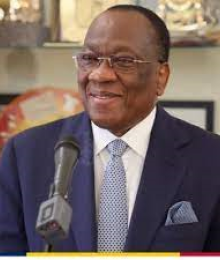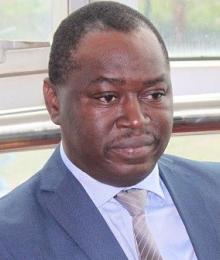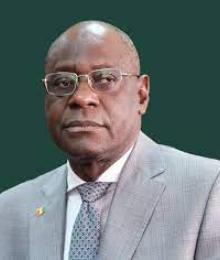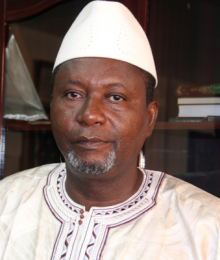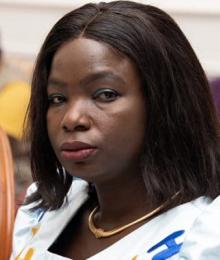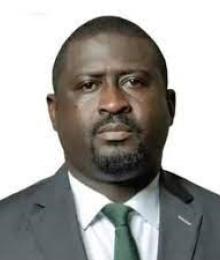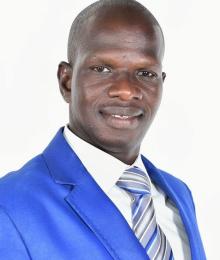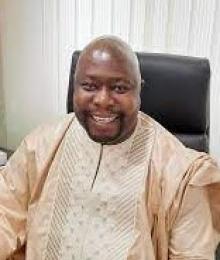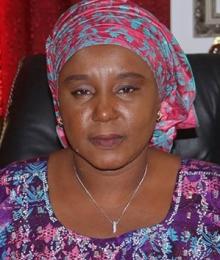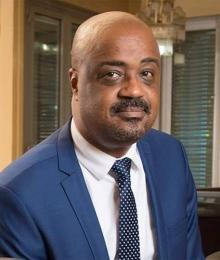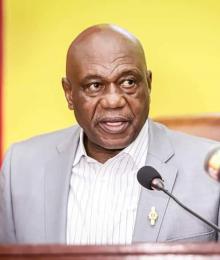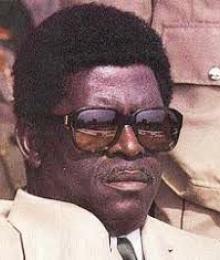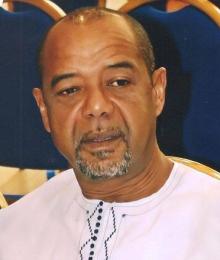
Born around 1961, Mohamed Touré is the son of Guinea's first president, Ahmed Sékou Touré. His life has been marked by significant upheavals: a privileged childhood followed by imprisonment and exile after his father's death in 1984 and the subsequent military coup. After living in Morocco, Ivory Coast, and the United States, he returned to Guinea in 2009 to revive his father's political legacy as the Secretary-General of the PDG-RDA party.
His political career was characterized by his support for Alpha Condé while maintaining a mediating stance between the government and the opposition. In 2018, his life took another dramatic turn when he and his wife were convicted of forced labor in the United States, resulting in a seven-year prison sentence. After his release, Mohamed Touré returned to Guinea in February 2025, with his return facilitated by the transitional president, General Mamadi Doumbouya. Upon his arrival, he appeared in a wheelchair due to health issues developed during his imprisonment.
Introduction
Mohamed Touré, the son of Guinea's first president Ahmed Sékou Touré, has had a life marked by his father's political influence, exile, political engagement in Guinea, and legal troubles in the United States. As a central figure of the Democratic Party of Guinea (PDG-RDA), he embodies the continuation of a political legacy while facing considerable personal challenges.
Early Life and Background
Born around 1961 (he was 51 years old in 2012, according to sources), Mohamed Touré is the son of Ahmed Sékou Touré, a symbol of Guinea's independence and the country's first president from 1958 to 1984. Although his childhood was likely privileged, it took a dramatic turn following his father's death and the military takeover by the army.
Exile and Return to Guinea
After his father's death in 1984 and the military coup led by Lansana Conté, Mohamed Touré, like many members of his family, experienced imprisonment. This dark period was followed by a long exile, taking him to Morocco, Ivory Coast, and eventually the United States, where he settled with his family.
It was only in the late 2000s that he returned to Guinea. In 2009, after nearly 25 years away, he came back to Conakry, determined to revive his father's political legacy through the PDG-RDA.
Political Career in Guinea
Upon his return, Mohamed Touré assumed leadership of the PDG-RDA (Democratic Party of Guinea-African Democratic Rally), a political party founded by his father. As the party's secretary-general, he sought to revive the historic organization, which many believed had died following the fall of Sékou Touré's regime.
During the 2010 presidential election, he supported Alpha Condé in the second round, positioning his party within the ruling coalition. However, his relationship with the government remained complex, as he openly criticized certain decisions and regularly called for dialogue between the government and the opposition.
In 2012, amid political tensions, he publicly urged President Alpha Condé and the opposition to "reestablish broken dialogue" and "temporarily set aside partisan considerations in favor of the nation's interests." This balanced stance reflected his desire to position himself as a mediator for national reconciliation.
During the 2018 municipal elections, the PDG-RDA, under his leadership, presented candidates in several constituencies and secured around twenty councilors. He viewed this as a relative success given what he considered an unfavorable political context for his party.
The Battle for Family Heritage
A significant aspect of Mohamed Touré's struggle has been reclaiming family properties seized after the 1984 coup. In several interviews, he denounced the confiscation by the Guinean state of properties belonging to his family, including his father's personal residence, the Bellevue Cases, and his own properties in Conakry.
Despite court rulings in his favor regarding some of these properties, he asserted that the enforcement of these judgments was systematically blocked by political interference, including under the presidency of Alpha Condé, whom he had supported. Describing the situation as "unjust," he criticized what he saw as an attempt to force his family to "live off charity."
Legal Troubles in the United States
In April 2018, Mohamed Touré's life took a dramatic turn when he and his wife, Denise Cros-Touré, were arrested in Texas. The couple was accused of keeping a young Guinean woman in forced labor for over 16 years at their home in Southlake.
According to the U.S. Department of Justice, they had brought the girl from Guinea in 2000 when she was only five years old, forcing her to perform domestic work and care for their children while subjecting her to physical and emotional abuse. The victim reportedly managed to escape in August 2016 with the help of former neighbors.
In April 2019, Mohamed Touré and his wife were sentenced to seven years in prison for "forced labor" and ordered to pay $288,000 in restitution to the victim.
Throughout the trial, the couple firmly denied the accusations through their attorneys, who described the allegations as "fabrications and lies." According to their defense, the young woman had been treated as a full member of the family.
Release and Return to Guinea
After serving his sentence, Mohamed Touré was released and returned to Guinea on February 8, 2025. His return was facilitated by the personal intervention of the transitional president, General Mamadi Doumbouya. He was welcomed at the Ahmed Sékou Touré International Airport in Conakry by the Minister of Foreign Affairs, Dr. Morissanda Kouyaté.
Upon arrival, Mohamed Touré appeared in a wheelchair, raising concerns about his health. According to close sources, he had contracted an illness while in prison, though not irreversible, requiring convalescence and limited physical effort.
In his first statements after his return, he expressed gratitude to the Guinean people and President Doumbouya for their support, stating that his "effective release was the result of a political push." He also thanked the Minister of Foreign Affairs for his efforts in the case.
Political Legacy
As the son of Sékou Touré and secretary-general of the PDG-RDA, Mohamed Touré has consistently portrayed himself as the guardian of a political legacy centered on national unity and Guinean sovereignty. He has regularly defended his father's often controversial record and criticized subsequent regimes for dismantling the achievements of the First Republic.
In a 2017 interview, he claimed that the PDG-RDA represented "the strength of the Guinean people" and argued that the party was targeted because it symbolized "the people's development and emancipation." He also condemned the tendency of Guinean political parties to be formed on "ethnic, tribal bases," contrasting this with the original pan-Africanist ideals of the PDG.
Conclusion
Mohamed Touré's journey reflects the complexities of political legacy in Africa and the challenges faced by descendants of significant historical figures. Between exile, political engagement, battles for family heritage, and severe legal issues, his life has been marked by stark contrasts.
His return to Guinea in 2025, facilitated by the transitional authorities, may signal the beginning of a new chapter for both himself and the PDG-RDA. Time will tell if Mohamed Touré can rebuild his life and play a meaningful role in Guinea's political landscape, beyond the shadow of his legendary father.











